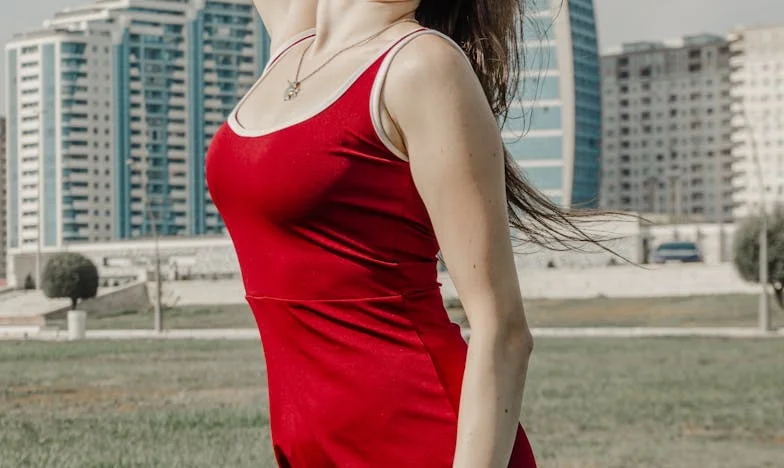Living for Myself: The Day I Came Home
“O, Viola, hey there! Visiting your mom?” Mrs. Henderson’s voice shot across the parking lot like a warning bell as I slammed my car door shut. Her white hair glowed bluish in the early morning sun, her robe flapping against the railing of her second-floor balcony.
I forced a smile. “Good morning, Mrs. Henderson. Yes, I’m here for Mom.”
She leaned over, voice dropping to a whisper that somehow carried. “Maybe you could talk to her, sweetheart. She’s been losing it ever since the divorce. Poor thing.”
Her pity dug into my chest. I gripped my suitcase handle. “What do you mean?” I tried to keep my voice steady, but even I heard the catch.
Mrs. Henderson’s eyes darted up and down the street. “I have insomnia, you know. I see her sometimes, pacing back and forth by the window late at night. Crying. She sits out on the porch steps in her bathrobe, just… staring.”
I nodded, throat dry. “Thank you, Mrs. Henderson. I’ll check on her.”
As I walked up the cracked sidewalk, the house loomed before me—not the haven I remembered, but a relic weighed down by grief. The porch swing creaked in the wind. I paused, taking a shaky breath, then pressed the doorbell.
A long moment. Then the door jerked open. My mother stood there, thinner than before, her hair hastily pulled into a ponytail. She blinked at me, as if seeing a stranger.
“Viola! You didn’t say you were coming today.”
“I wanted to surprise you. Can I come in?”
She stepped aside, and I entered the living room, where my childhood photos hung askew. The TV flickered with some cable news channel, volume muted. The air smelled faintly of coffee and something burnt.
We sat in silence for a moment before she spoke. “I was just about to make breakfast. Do you want some eggs?”
“I’m good, Mom.” I studied her face, noting the dark circles under her eyes.
She busied herself in the kitchen, clattering pans. “You know, your father called yesterday. Wants to pick up his old records. Can you believe that?”
I swallowed. “Mom, maybe you should rest. Mrs. Henderson said she’s worried about you.”
She spun around, spatula in hand. “Worried about me? Why? Because I’m finally getting used to being alone?” Her voice cracked.
I reached for her hand, but she pulled away. “You don’t understand, Viola. You have your own life. You don’t know what it’s like to have everything ripped out from under you at 58.”
“Mom, I—”
She slammed the pan down. “Do you know what it’s like to lie awake at night, wondering where you went wrong? If you wasted your best years on someone who just walks away?”
I bit my tongue. I’d heard this before, every phone call, every visit. I knew the script by heart. But today, something inside me snapped.
“I do know what it’s like to feel lost, Mom. But I’m lost in my own way. I came here because I need you, too. I can’t keep being the strong one, always fixing things.”
She stared at me, tears brimming. “You’re all I have left, Viola. I don’t want to lose you, too.”
I sat down at the kitchen table, hands trembling. “Mom, I’ve been living my whole life trying to make you proud. It’s like there’s never enough of me—never enough time, never enough love to fill the holes left behind. But I’m tired. I want to live for myself, for once.”
The words echoed between us. She wiped her eyes with the back of her hand. “What does that mean? You’re moving away? You’re leaving me?”
I shook my head. “I’m not leaving you. But I need boundaries. I need to find out who I am outside of being your daughter.”
She sat down across from me, shoulders slumped. “I never wanted to burden you. I just—after your father left, I don’t know who I am anymore.”
I reached for her hand again, and this time she let me hold it. “We both have to figure that out. Separate. Together. I’ll help you, but you have to let me breathe.”
The kitchen clock ticked loudly. She nodded, and for the first time in months, I saw her really look at me—not as a lifeline, but as her daughter. Someone with her own wounds.
The rest of the day passed in fits and starts. I helped her clean the spare room, where Dad’s boxes still sat unopened. We argued over what to keep, what to throw away. She cried when she found his old baseball cap, and I let her. That night, she made us grilled cheese sandwiches and we watched an old sitcom rerun, laughing at the canned studio audience.
Later, as I lay in my childhood bed, listening to the house settle, a text buzzed on my phone. My brother, Jason. “How’s Mom?”
I stared at the screen, fingers hovering. I typed: “She’s hurting. We both are. But maybe we’re finally starting to heal.”
Outside, the porch light flickered. I wondered if Mrs. Henderson was watching, still awake, still worrying. I thought about all the women like my mom, and daughters like me, caught in the crossfire of heartbreak and hope.
I closed my eyes and whispered into the darkness, “How do you live for yourself without leaving the people you love behind?”
Would you choose yourself, if it meant risking someone else’s happiness? Or is there another way we can all move forward—together, but free?
